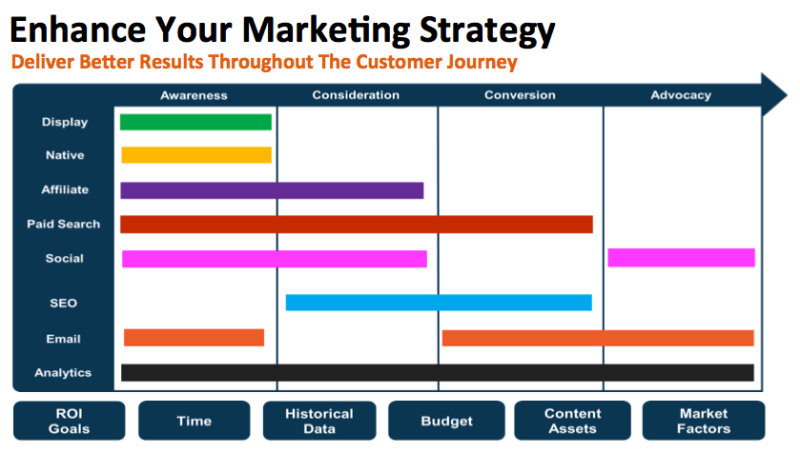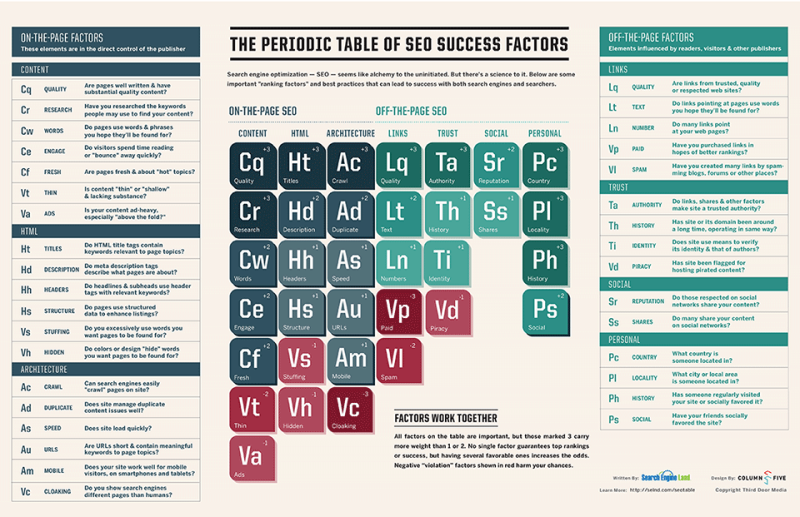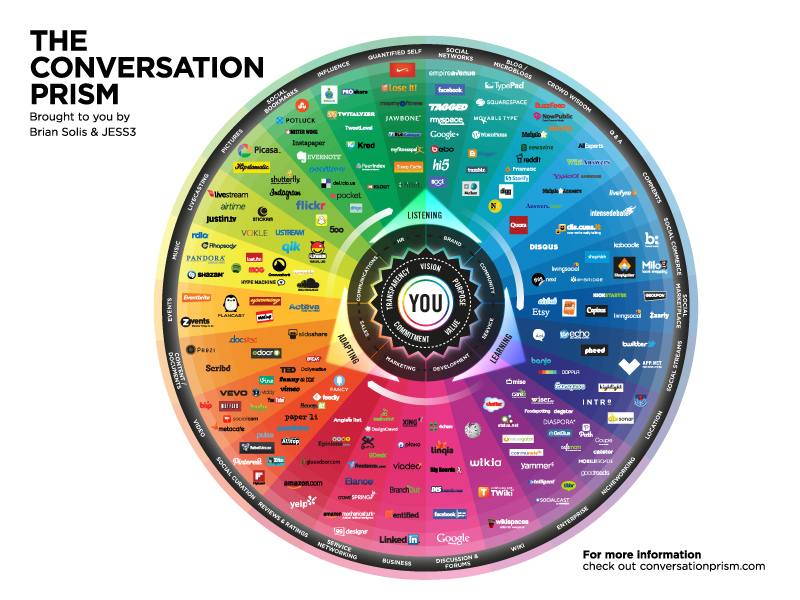5 Things University Marketing Programs Aren’t Teaching (But Should)
With online marketing changing at such a rapid pace, it's hard for educators to keep up. Columnist Travis Wright suggests ways business schools should revamp their marketing programs for the 21st century.

First of all, if you get into Marketing… you’d better love learning. This space changes more frequently than Lady Gaga’s weird outfits. If you stand still for too long, you will get passed by. You have to be on top of your game, to keep learning and growing.
When asked what my secret to success in marketing is, my answer is immediate: continual education. You can’t graduate with a degree and be amazing at marketing — especially since many business schools that teach marketing aren’t giving their students the right information.
There are going to be some exceptions to this list, of course, as some programs are more innovative than others. However, one thing is certain across the board: marketing programs aren’t doing their best to get students ready for real marketing careers.
The Typical Marketing Degree
The Washington University Olin Business School is regularly ranked by Bloomberg BusinessWeek as one of the top undergraduate schools for marketing in the United States. Sorry to pick on you, Washington U., but looking at the requirements for your Bachelor of Science in Business Administration for the class of 2015, you’re left wanting.
There area variety of course options, with students required to complete “42.5 units of professional business requirements,” “12 units of business electives,” “17.5 units of additional electives” and “48 units from the College of Arts & Sciences” to earn their degree in marketing.
Here’s a sampling of available courses, with the ones most applicable to Real Life Marketing highlighted:
- Capital Marketing and Financial Management
- Principles of Marketing
- Market Competition and Value Appropriation
- Financial Intermediaries and Market Econ.
- Capital Market Imperfections
- Marketing Research
- Intro to Entrepreneurship
- Web Development
- Venture Consulting
- Brand Management
- Marketing Strategy
- Leadership in Organizations
None of these listed courses have any “Part 2s” — what you see is what you get.
While there’s a hint at relating to real world marketing in courses like Web Development and Intro to Entrepreneurship, a single course on the subject isn’t going to do anything except give students a whiff of what they’ll be expected to have mastered.
So, what should a truly helpful undergraduate marketing degree course load look like? Here are a few ideas.
Do Marketing Degrees Include Analytics?
In marketing these days, every decision is based on data. We are in a data-driven world — and if you don’t understand the basics of analytics, you’ll be passed up for someone who does.
If you look at a slide from Rise Interactive‘s latest marketing deck, it has the perfect slide for describing why analytics is so important. Look at the customer journey cycle, from awareness, consideration, conversion and advocacy — analytics is the one channel that ties it all together.

Analytics is the channel that drives all decisions across other channels.
Shouldn’t Marketing Degree Courses Teach Mobile Readiness?
Everyone has a mobile phone in their pocket — so where’s the course on mobile marketing?
I don’t see any classes on responsive design, mobile readiness and inbound marketing, either (which is worlds away from traditional marketing). Using poor ol’ Washington U.’s example, maybe it’s included in that single Web Development course — but probably not.
Can you really learn in one course everything you need to be competitive from a marketing standpoint in a mobile-ready world? No.

Credit: A slide from Travis Wright’s MarTech deck.
When you consider that most people check their phone 150+ times a day, you’d better learn how to market to and design for mobile.
It again shows how antiquated these professors and marketing schools are at many U.S. Business Schools. It makes me wonder about the last time many of these instructors actually marketed anything.
Isn’t Content Marketing Important For A Marketing Degree?
It might be a smart move for marketing majors with a plethora of electives available from any department to head to the English department. “Content is king!” is the rallying cry of today’s marketers, and it takes a special kind of writer to script fantastic content marketing pieces.
This is something no strictly business-angled marketing course can help students with. If they can’t write marketing content, who’s going to hire them?
This is where I lucked out in my education; I wanted to be a sports broadcaster originally… so I studied journalism at the University of Kansas. Having that skillset under my belt in today’s marketing world has been a boon for business. I love writing. So, if you are in school studying marketing, you’d better love to create content. :-)
What About Optimizing Your Site & Content For Search?
Every single website needs to be optimized for search engines and, if applicable, local SEO.
I had fallen into SEO by intuition before Google was even launched. While working for GTE Yellow Pages in 1997, I started instructing small business owners to buy their keyword-rich domains, if they were available.
It was amazing how many great domains that I’d score people. I helped a KC area plumber score KansasCityPlumber.com and helped a Branson MO attorney get BransonLawyer.com, etc.
Keywords have always been important. Much of what you write about is based on the keywords your prospects search for and want to read about.
Nowadays, SEO has changed so much, it’s difficult to keep up with Google’s every animal name and algorithmic whim. However, there are some very basic site architecture things that you need to do to ensure that your site is indexed correctly.
However, looking at the business school requirements mentioned above, there’s not a single SEO course listed in the vast majority of marketing departments.
Someone applying for an entry-level marketing job may very likely be asked about their SEO skills — and they won’t have any if they depend just on their education. While marketers (usually) aren’t expected to be SEO whizzes themselves, they at least need to know the basics.
Do Modern Marketing Degrees Teach Social Media Management?
A course on overseeing Facebook, Twitter and the like? That would be one seriously popular course — and it would also prepare students for the reality that social media management isn’t fun filled with days of scrolling through newsfeeds. The world needs SM managers with skills, and they’re tough to come by.
By looking at Brian Solis’ and J3SS3’s Social Media Conversation Prism 4.0, you can see that there are a lot of channels and social media networks to consider. According to the above business school requirements, it appears they miss the mark on social.
Other Things Missing From Modern Marketing Degrees
Where are the classes on tag management, conversion optimization, marketing automation or classes on becoming a thought leader? Where are all the courses that are actually applicable to a marketing department?
Once these grads get their diploma and the celebrations are over, they’re realizing they’re ill-prepared to actually be a marketer — even at the entry level.
In Paul Roetzer‘s book, The Marketing Agency Blueprint, he mentioned a statistic that inspired this blog post.
“As demand for performance-driven, digital-savvy talent rises, universities are struggling to prepare students for the reality of a rapidly changing industry. Courses in analytics, automation, content, email, mobile, social, and other critical areas are rarely deeply integrated into marketing programs.
While digital-related courses are commonly offered as electives, our research of the top 10 undergraduate marketing programs in the United States, according to the 2014 U.S. News & World Report rankings, showed only one, Indiana University Bloomington (@IUBloomington), has a required digital marketing course—Analysis of Marketing Data.
College students generally have opportunities to learn digital marketing strategy and tactics. However, because of the way the higher education system is structured, many can earn undergraduate marketing degrees without taking a single digital class.”
I’ve spoken at several business schools, including the University of Chicago’s, Booth School of Business and the University of Utah, David Eccles School of Business. Each time after I’m done presenting, students approach me feeling scared — due to the overwhelming lack of knowledge and job readiness they have. I let them know what they didn’t know that they need to know.
It’s time for a marketing degree course load makeover for the digital era, so who’s going to lead the evolution?
Contributing authors are invited to create content for MarTech and are chosen for their expertise and contribution to the martech community. Our contributors work under the oversight of the editorial staff and contributions are checked for quality and relevance to our readers. MarTech is owned by Semrush. Contributor was not asked to make any direct or indirect mentions of Semrush. The opinions they express are their own.
Related stories
New on MarTech

